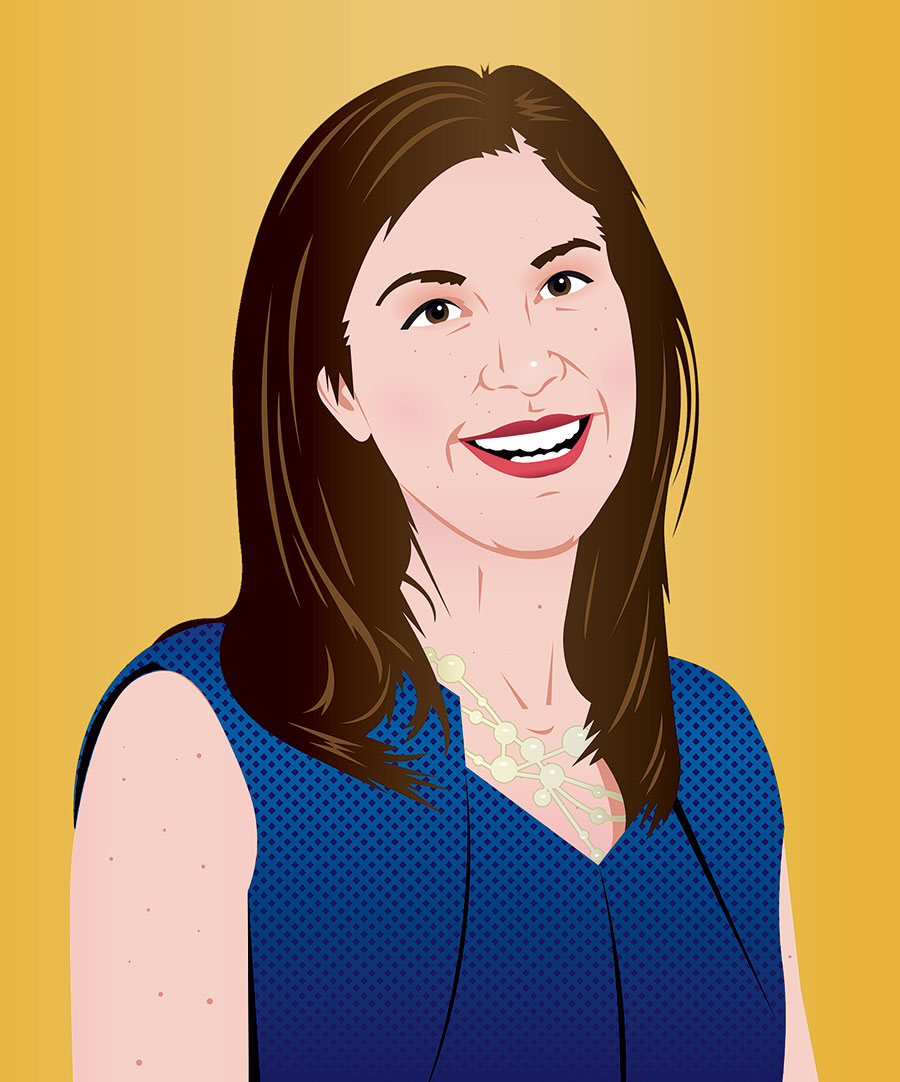■ The survivors who are part of our museum family have seen the absolute worst that humanity has to offer, and yet they’re optimists. They’re also unbelievably generous, because every time they recount their story, they’re right back on the arrival ramp. They want to create a better world, not just for themselves and their children and grandchildren, but for everyone. The other thing is — and it’s probably a survival mechanism — they have amazing senses of humor. So between all of those things, they’re a gift.
■ When you visit Auschwitz today, there’s green grass and trees. On a sunny day, there is a blue sky and you can hear birds chirping. But survivors will tell you there wasn’t a blade of grass or a piece of bark on a tree when they were there, because the prisoners would have eaten it. I was standing with one of them, Fritzie Fritzshall, when we were filming at Auschwitz. She got this faraway look and said, “I feel hunger. I feel cold.” It’s visceral for her.
■ In 2015, I started to hear “Nazi” become more a part of the casual vernacular. It’s a misappropriation and a form of denial of the gravity, depth, and horrors of the Holocaust experiences. It’s disheartening and frustrating. We work to combat that. We did op-eds when people were comparing Governor Pritzker and others to Hitler as they instituted mask mandates and comparing masks to Jewish stars. It makes no sense.
■ In my first week at Goldman Sachs, we were sitting around the table having dinner together, because you always worked late. I finished and got up, and I instinctively leaned over to clear the plate of the guy next to me. Suzanne Nora Johnson, who was then a young executive but rose to become vice chairman, pulled me aside quietly and said, “You don’t clear other people’s plates, and you certainly don’t clear the plates of the guys in the room. You need to comport yourself as a professional. It’s too easy to be asked to get the coffee or cut the cake.” Now, as CEO, I can clear all the plates I want; no one’s going to thrust me into that role.
■ There’s a narrower band of acceptable behavior for women. You’ve got to be strong but not strident. On this panel I was part of, there was a conversation about not being afraid to channel your — I don’t love this word — inner bitch. Sometimes you have to make unpopular decisions, and you certainly can’t please everyone.
■ Almost no one in the camps survived alone. You had to have a friend, a relative, a human connection. Fritzie talks about her aunt Bella saying, “Let’s just live until the morning. Tomorrow will be better.” In the barracks, prisoners would exchange recipes and talk about whose mother cooks a better brisket. It was remembering, and pretending they had that little bit of normalcy. Resilience is something we can learn from survivors.



